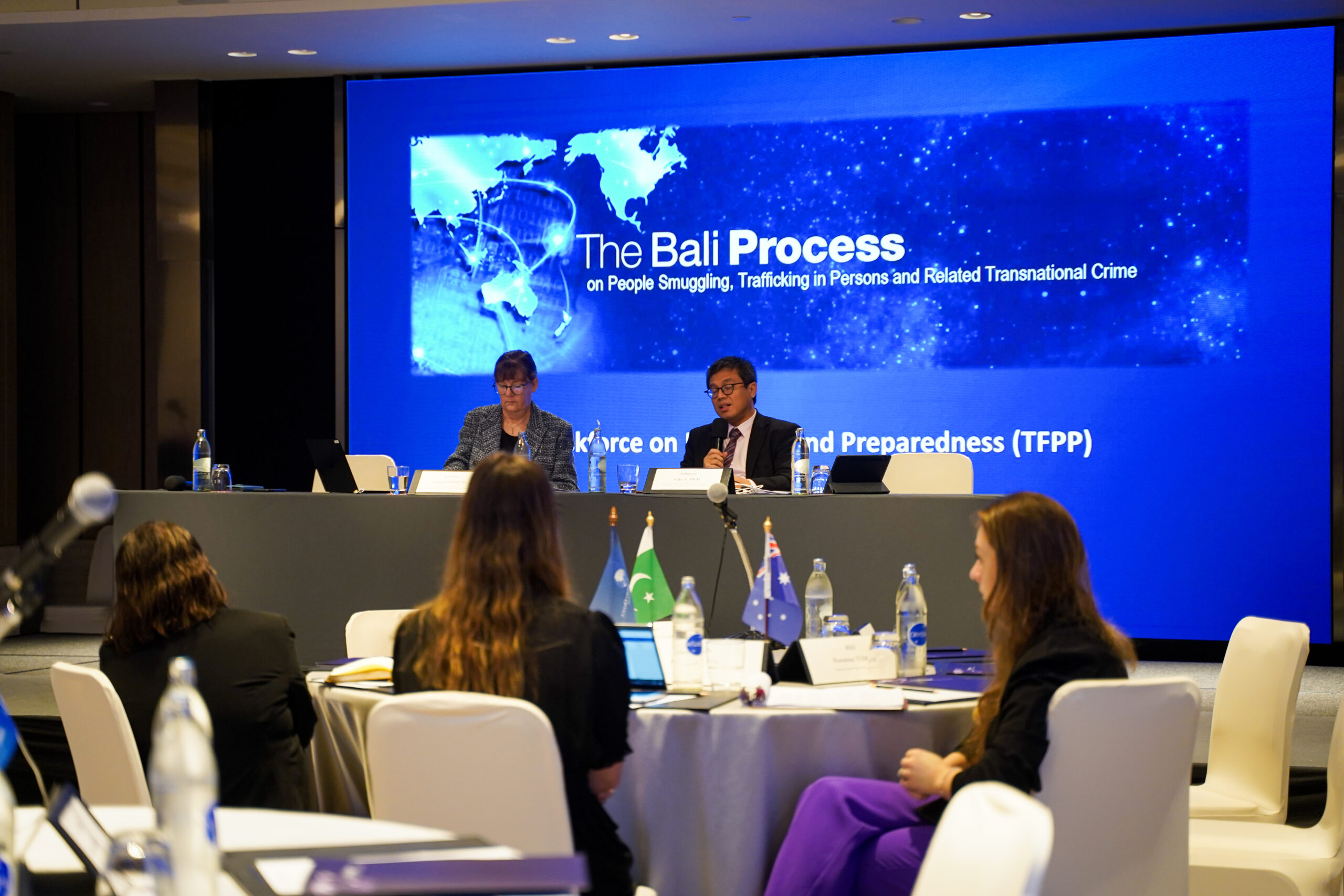
The Bali Process Consultation Mechanism was activated on 19 December 2023 in Bangkok, Thailand, in response to recent irregular maritime movements in the Andaman Sea. Co-chaired by Australia and Indonesia, the meeting provided a confidential forum for member countries to share updates, discuss coordinated responses, and address urgent humanitarian and security concerns. These meetings take place in addition to the regular Steering Group and Ad Hoc Group Senior Officials Meetings and can be convened at the Ministerial level if necessary. They are designed to:
- Exchange the latest information on emergency irregular migration situations among relevant members.
- Facilitate timely coordination of appropriate Bali Process and other regional support.
- Provide a platform for members to share ideas on potential national, bilateral, or regional emergency migration responses.
Recent discussions centered on strengthening early warning systems, improving search and rescue operations, and safeguarding vulnerable groups, especially women and children. They also underscored the need for a coordinated regional approach to save lives, disrupt people-smuggling networks, and uphold humanitarian principles in all responses.
Task Force for Planning and Preparedness
The Consultation Mechanism is supported by the Task Force for Planning and Preparedness, a dedicated body that works to strengthen cooperation among operational officials involved in responding to maritime migration events. The Task Force’s primary objective is to reinforce early warning systems and enhance the ability of relevant authorities to coordinate operational responses during large-scale influxes of irregular migrants. In practical terms, this involves the development of protocols and standardized measures to improve coordination across key stages of response—ranging from detection and search-and-rescue operations to disembarkation procedures and shelter management. By facilitating the exchange of national, bilateral, and regional best practices, the Task Force seeks to harmonize approaches and move toward predictable, functional, and standardized response frameworks at both the sub-regional and regional levels.
To achieve this, the Task Force convenes regular meetings, which have included Tabletop Exercises (TTXs) designed to test coordination under simulated crisis scenarios, as well as in-depth discussions on the development and refinement of National Plans of Action (NPAs). These activities provide a platform for operational officials to strengthen preparedness, identify gaps, and align response measures, thereby contributing to a more coherent and effective collective response in the event of future mass displacement by sea.

Consultation Mechanism Past Events
All




